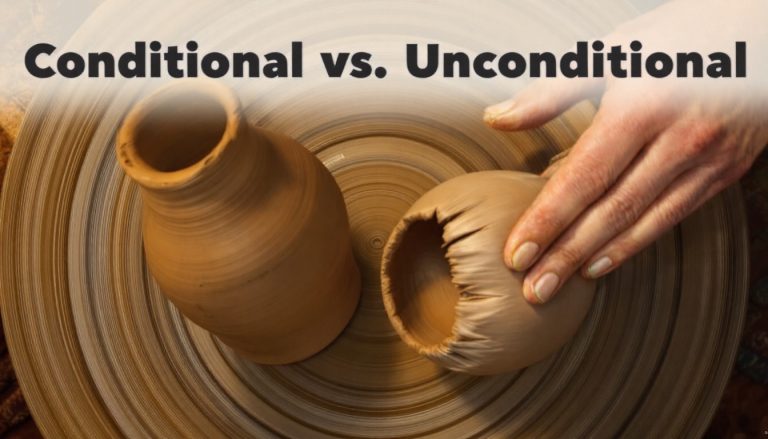Unconditional Election: Is Predestination Compatible with a Loving God?
Defining the Debate
Calvinism’s Unconditional Election asserts God sovereignly chooses individuals for salvation solely based on His will, not human merit or foreseen faith (Ephesians 1:4–5). In The Potter’s Freedom, James White argues this doctrine reflects God’s glory, not human worthiness (pp. 121–135). But a moral dilemma arises: If God predestines some to hell, how is this consistent with His love (1 John 4:8)? This article challenges Calvinist claims using Scripture, theology, and the universal offer of grace in 2 Peter 3:9: “God desires all to repent.”
Calvinist Proof Texts Revisited
- Romans 9:10–23 (“Jacob I loved, Esau I hated”)
- Calvinist Interpretation: God’s absolute right to elect or reject individuals.
- Counterargument:
- Corporate Election: God’s choice focuses on nations (Israel vs. Edom) for His redemptive plan, not individual eternal destinies (Malachi 1:2–3).
- Pharaoh’s Hardening: Self-hardening precedes divine judgment (Exodus 8:15; Romans 9:17–18). White dismisses this as “anthropomorphic language” (p. 230), but Exodus 8:15 explicitly states Pharaoh hardened his own heart first.
- Ephesians 1:4–5 (“Chosen in Him before the foundation of the world”)
- Calvinist Claim: Election is unconditional, tied to God’s eternal decree.
- Counterargument:
- “In Him” implies election through union with Christ, not arbitrary selection (1 Peter 1:2; Romans 8:29). God’s foreknowledge of faith logically precedes election. White argues foreknowledge “is not a cause” (p. 182), but this ignores 1 Peter 1:2’s “elect according to foreknowledge.”
Biblical Counterarguments for Conditional Election
- 2 Peter 3:9 (“God desires all to repent”)
- Calvinists redefine “all” as “the elect,” but Peter urges patience for universal repentance (v. 3: mockers delay Christ’s return). White dismisses universal atonement as “hyperbole” (p. 193), but the Greek pas (“all”) is unrestricted.
- 1 Timothy 2:3–6 (“God wants all saved”)
- Christ’s ransom for “all” aligns with prevenient grace (Titus 2:11). White claims “all types” (p. 199), but Paul emphasizes every person (1 Timothy 2:4).
- John 3:16–17 (“World” and “whoever believes”)
- The term “world” (Greek kosmos) contradicts limited atonement. Christ’s love extends universally, inviting voluntary faith (Revelation 22:17).
Theological Critiques
- Divine Morality
- If God predestines individuals to hell, He becomes the author of eternal torment. Ezekiel 18:23: “Do I take pleasure in the death of the wicked?” White argues God’s justice is “beyond human critique” (p. 242), but Scripture repeatedly ties God’s character to mercy (Exodus 34:6–7).
- Election and Foreknowledge
- God’s foreknowledge of faith (Romans 8:29) harmonizes sovereignty and human response. White rejects this as “semi-Pelagian” (p. 87), yet Acts 13:48 (“appointed”) implies responsiveness (tasso = arranged, not compelled).
- Universal Love vs. Particular Grace
- If God loves all (John 3:16), why not sovereignly save all? White claims “God’s freedom requires discrimination” (p. 205), but Scripture prioritizes God’s desire for universal reconciliation (1 Timothy 2:4).
Philosophical Objections
- Libertarian Free Will
- Moral responsibility requires genuine choice (Joshua 24:15). Calvinist determinism undermines accountability (Deuteronomy 30:19).
- Theodicy of Hell
- Eternal punishment for decreed unbelief challenges God’s justice (James 1:13–15). Hell results from resisted grace, not divine caprice (Matthew 23:37).
- Middle Knowledge (Molinism)
- God’s omniscience includes how individuals respond to grace under any circumstance. White dismisses this as “philosophical speculation” (p. 53), but Scripture affirms God’s exhaustive foreknowledge (Psalm 139:4).
Practical Implications
- Evangelism and Prayer
- Unconditional election risks fatalism. Contrast Calvinism’s passive “elect-only” focus with Acts 17:30 (“command to repent”) and Paul’s urgency (1 Corinthians 9:22).
- Assurance of Salvation
- Calvinist doubt (“Am I elect?”) contradicts 1 John 2:2 (“atonement for the whole world”). Assurance flows from God’s universal offer, not hidden decrees.
- God’s Character
- Unconditional election portrays God as arbitrary; conditional election reflects mercy and justice (Exodus 34:6–7).
Addressing Calvinist Rebuttals
- “God’s Ways Are Higher” (Isaiah 55:8–9)
- Divine transcendence doesn’t negate moral consistency. Deuteronomy 29:29: “Secret things belong to the Lord, but revealed things belong to us.”
- “Election Shows Mercy, Not Injustice” (Romans 9:15–16)
- God’s mercy is universal (John 1:9; Titus 2:11). Judgment falls on those who resist grace (Acts 7:51).
- “Vessels of Wrath Prepared for Destruction” (Romans 9:22)
- Corporate judgment: Nations hardened for temporal purposes (e.g., Pharaoh), not predestined individuals.
Conclusion: A God-Centered Synergy
Rejecting unconditional election doesn’t deny God’s sovereignty. God initiates salvation (John 6:44), yet humanity responds freely (John 12:32). 2 Peter 3:9 reaffirms God’s patience: His love desires universal repentance.
Revelation 22:17: “The Spirit and the bride say, ‘Come!’ Let whoever hears say, ‘Come!’ Let whoever is thirsty come!” Salvation balances divine sovereignty and human responsibility—God’s grace invites, and wills answer.






